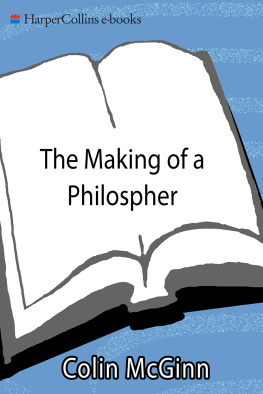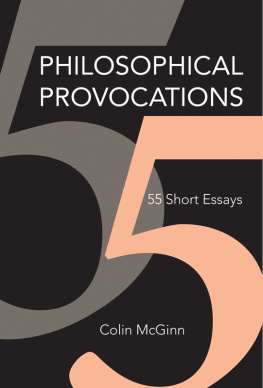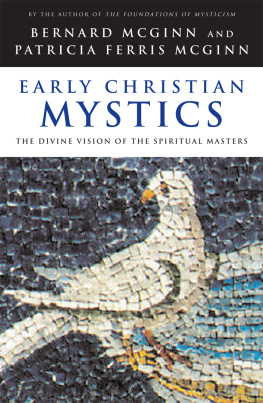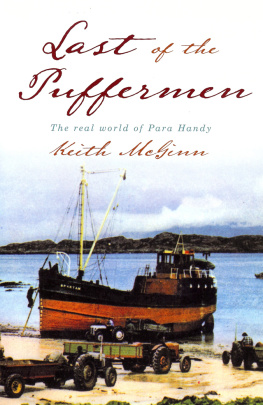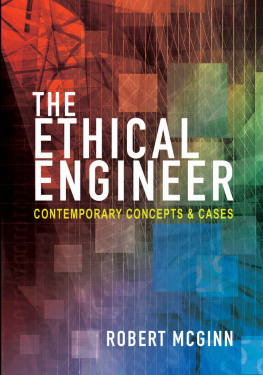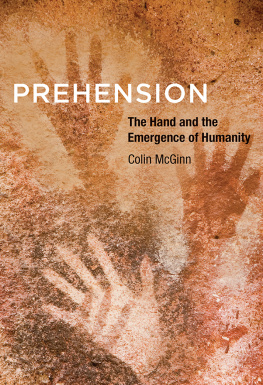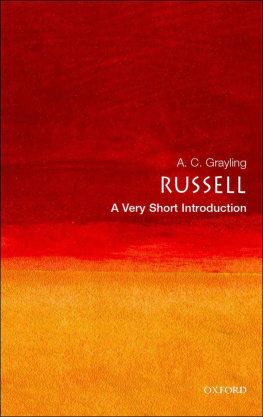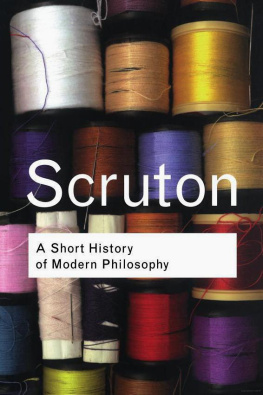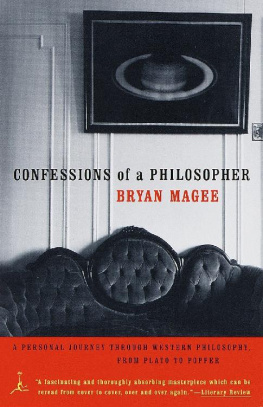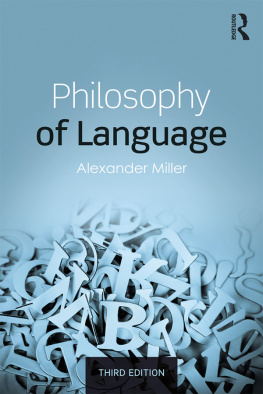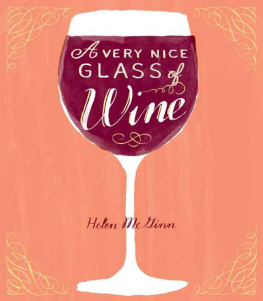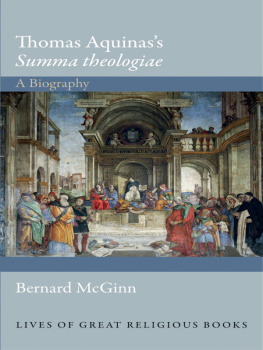THE MAKING OF A
PHILOSOPHER
MY JOURNEY THROUGH
TWENTIETH-CENTURY PHILOSOPHY
C OLIN M CGINN

Contents
THE PURPOSE OF THIS BOOK IS TO EXPLAIN PHILOSOPHY IN AN accessible, engaging way. But how best to do that? After trying out a number of plans for such a book, I hit upon the autobiographical format. More orthodox formats inevitably became too textbooklike, and while there is a place for such books I didnt want my book to remind the reader of school. I realized that what was missing was a sense of philosophy as a lived subjectas part of a flesh-and-blood human life. By placing philosophy in an autobiographical context I could convey the excitement and passion of the subject, as well as its trials. I myself have greatly enjoyed reading other philosophical autobiographies and biographies; I might mention here, in particular, Bertrand Russells Autobiography and Ray Monks biography Ludwig Wittgenstein: The Duty of Genius. However much of a purist I may be about philosophy, there is no denying the drama and realism that come with a more personal approach. In this book, therefore, I make a point of situating the philosophy in its personal context, emphasizing the people, places, and times involved. There is also an element of struggle inherent in living a life of philosophy, and I have tried to bring this out in my own case. The result, I hope, captures the texture of the day-to-day consciousness of a professional philosopher.
I should make it clear that this is not a full autobiography; it is an intellectual autobiography. I therefore mention only those experiences and relationships that bear directly upon my intellectual life. I make no mention of experiences and relationships, however important they may have been, that do not contribute toward a portrait of my philosophical existence. Mostly, this is a book about what has gone on in my mind. I want to stress this because it might be only too easy for my reader to interpret a lack of discussion of extra-philosophical events as a lack of the relevant kinds of events. One stereotype of the philosopher has him or her confined to a lonely room all day, ceaselessly contemplatingas if there were no love or sex in the life of a dedicated philosopher. I grant that the way I describe my life here might confirm this stereotype, since I make no mention of such worldly matters. But, to repeat, the absence of such discussion should not be taken to imply the absence of the relevant kinds of experiencefar from it. I have simply carved out that portion of my life in which philosophy has occupied center stage. There is already enough turmoil and drama there to be mentioned.
The kind of philosophy dealt with in this book is often labeled analytical philosophy. This is really too narrow a label, since what I choose to discuss is not generally a matter of taking a word or concept and analyzing it (whatever exactly that might be). The philosophical tradition of which I am a part begins with Plato and Aristotle, continues through Locke, Berkeley, and Hume, as well as Descartes, Leibniz, and Kant, and reaches Frege, Russell, Wittgenstein, and their recent philosophical descendants. This tradition emphasizes clarity, rigor, argument, theory, truth. It is not a tradition that aims primarily for inspiration or consolation or ideology. Nor is it particularly concerned with philosophy of life, though parts of it are. This kind of philosophy is more like science than religion, more like mathematics than poetrythough it is neither science nor mathematics. So readers in search of a book about eastern philosophy, or Continental philosophy, or post-modern philosophy, will not be rewarded by this one. This is a book about philosophy as it is practiced today in the university philosophy departments of the world and which is now largely the analytical kind of philosophy.
The book is thus about contemporary academic philosophy. What I have aimed to do is present an extended glimpse of this world, so that the reader will come away with an impression of what the genuine article looks like. Some of my discussions may therefore seem tough going, and removed from the concerns of everyday life, but I have tried to make the ideas as clear as possible while doing justice to academic philosophy as it has actually been practiced over the last thirty years. What you get here is what there is. Not that this kind of philosophy is somehow only of interest to those who are paid to practice it; part of my point in this book is that these ideas should be of interest to everyone who is concerned with fundamental questions about reality. As I am at pains to show, I myself was drawn to philosophyirresistibly sosimply by the intrinsic interest of the questions; in a way, it is accidental that I ended up teaching in a university philosophy department.
And let me not give too somber and heavy a picture of what follows. It is not all brow-creasing deep thought; philosophy has its funny side, and its all-too-human side. Philosophers, after all, are human beings too, surprising as that may sound.
Colin McGinn
New York
July 2001
Chapter One
First Stirrings
I WAS BORN IN 1950, FIVE YEARS AFTER THE END OF WORLD WAR II , in West Hartlepool, county Durham, a small mining town in the northeast of England. The hospital in which I was born was a converted workhouse, or homeless shelter as it would be known today. My mother was twenty years old, my father twenty-six, and I was their first child. Both my grandfatherswhose names were both Joseph, like my fatherswere coal miners, as were all of my uncles except one, who was a carpenter and bricklayer. Life expectancy among miners was low, and both my grandfathers died young from work-related diseases. Everyone in my family was short and wiry. My paternal grandfather was known in the mine as Joe the Agitator because of his activities in fighting for improved working conditions; he eventually became secretary of the local miners union, and read Karl Marx and Rudyard Kipling in his spare time. He was a kindly, clipped man, not much given to conversation, devoted to his Woodbine smokes. I never remember a time when my tiny, shrill-voiced, constantly cussing grandmother had any teeth; she chewed meat with her gums. She said thee and thou (pronounced thoo) as part of ordinary speech, as in thee knaas Jack Ridley (meaning you know Jack Ridley). Of a blunt knife she would say I could ride bare-arsed to London on this and give out a throaty, high-pitched cackle. I have no recollection of my maternal grandfather, though his widow is still miraculously alive at ninety. My father left school at fourteen and went down the pit, his first job being to pick stones out of the coal as it was shunted by on a massive belt contraption. But he quickly escaped this form of premature burial by going to night school and learning the building trade. He was sufficiently proficient at this to become general manager of a small building company while still in his twenties, and he made his career as manager of various branches of the building department of the co-op in different parts of England. He retired early and now has a second career as a painter, mainly of scenes from the mining towns in which he grew up. Some of his work is in the historical record of the art gallery that serves the area his paintings record. Both my brothers, Keith and Martin, are artists too, though I was never very strong in that department.
I have no recollection of my first three years in the northeast, and when I was three we moved to Gillingham, Kent, in the southeast of England. What a difference three hundred miles makes. Kent is known as the garden of England, while county Durham was a place of enormous smoking slag heaps, cramped terraced streets, and chilly outside toilets. In Gillingham I enjoyed the woods and the fields, taking a special interest in wildlifeparticularly lizards and butterfliesand grew to be the tallest McGinn on record (I am five feet six inches tall), until my giant of a younger brother took over at a remarkable five feet nine. At age eleven I took the infamous Eleven Plus, a scholastic test to determine what type of school you would go to for the rest of your school years, and did not perform well enough to go to a grammar school. I was therefore sent to the local technical school, where I was expected to learn the skills necessary to become a tradesman or technician. However, after only eight years in Gillingham we moved again, this time to Blackpool in the northwest, and after a series of mishaps I was sent to the local secondary modern schoolone step

